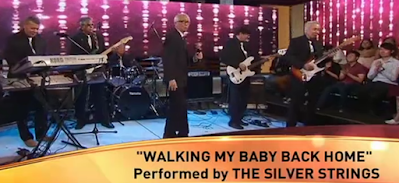Taiwan
The highest building Taipei 101 is in the Xinyi Commercial District, has many luxury shopping malls and is one of the must-see destinations for visitors to Taiwan. The area is cycle-friendly, thanks to a grid of purpose-built cycling tracks where one can hire a bike by swiping a public-transport and convenience store friendly card.
It costs about US$3/00 for a three-hour ride. How convenient. What amazed me were the clean and shiny bicycles all neat in a row, ready for use. During our trip last year to Taipeh we didn't try riding them since my wife doesn't ride a bike but with the ease of transportation, wide, clean pedestrian paths and friendly people it was just as convenient walking around.But it has a healthy bicycle culture.
New Zealand
A similar culture was already in existence way back in the 1970's when I was in Christchurch, New Zealand. Amidst colourful flowers on side-walks and orange-leafed trees I remember seeing this windy rush of bicycles with a dozen pretty Kiwi girls in shorts turning a corner in the busiest part of the city. No speed, no hassle, no one fell as each bike disappeared safely around the bend. It was fast but it was a beautiful sight indeed. And I noticed that no one wore a helmet!
Cyclists in New Zealand were usually very polite and street sensible, stopping at corners and giving way to pedestrians. I noticed that most bicycles had bells on them and the sweet ting, ting, ting sound that danger was behind. But this was in 1973 so I don't really know what's happening today.
France
According to an article about cycling, France was one of the first countries to ever take up past-time. In fact, the word bicycle was originated in France in the middle of the nineteenth century. The creation of the Tour de France bicycle race in 1903 made cycling all the more important to the country.
Personally I have seen them all over the country; on cars,in trains, ferries. They move over mountains, hills and dales. Again, the culture, developed through many years of practice makes perfect, have cyclists who hardly knock into pedestrians, other cyclists or vehicles. They stop to give way, and like the ones in New Zealand, will stop at zebra crossings, red lights and make way for little children who come in the way. This happened in the early 1990's but could be different now.
One of the most famous songs about bicycles is a favourite of mine called, Les Bicyclettes De Belsize. The song itself is from a film of the same name and the music and lyrics were written by Les Reed and Barry Manson. This favourite has been a hit for Engelbert Humperdinck since the 1960's and was top ten in the UK and top forty in the USA and other countries.
Where The Bicycle Bell Doesn't Ring:
Singapore
I do not own a bicycle now but there are lots of stories about this mode of transport in Singapore recently. Bicycle lanes, bicycle parking spaces, bicycle thefts, bicycle locks and so on. It's a great way to get around but the question is, do we really have a bicycle culture in our country?
There must be formal lessons in etiquette and civic consciousness in the classroom before the people in charge embark on such a project. We cannot take for granted that cyclists, pedestrians and motorists will commit to rules they have to abide by. Otherwise it may just be too late.
For illustration only. Is this safe for the child?
In my area there is a lady who carries a baby in a little wicker basket (image right for illus.) that is perched behind the bicycle. I have spoken to her politely about the dangers, that we cannot take for granted the road situation, but she has ignored my advice.
We have people in Singapore today from foreign lands. It is urgent that they realise they are not in their own country and situations here are different from those abroad. Similarly we must school our own citizens to abide by the rules too.
A culture takes some time to evolve but we need to start with proper enforcement.
I was nearly hit by a cyclist recently when he came past the bus stop I was at. He was inches away from me, coming from behind, without warning, without consideration and worst, without slowing down.
For a safer cycling experience.
What do you think? Please write in.
Disclaimer:
There is no intention to criticize the present system but we need to tighten the screws where regulations and enforcement are concerned.
Images: Google.




































